HOHENFELS, Germany - French soldiers with the 70th Engineer Paratrooper Battalion had few issues with mastering the various tasks that go with calling in close air support, it's just the speaking English part that slowed some of them down.
The French soldiers were at the Joint Multinational Readiness Center learning how to use airpower to sustain them as they gear up for their six-month deployment to Afghanistan. They were confronted with a realistic computerized scenario that is based on real events in the seven-year campaign to rid the nation of Taliban insurgents and stabilize its duly-elected government.
"I developed the scenarios after talking to Soldiers who had actually been there," said Frank McClellan, a system specialist for the Bullseye system. "I would sit down with them and ask them, 'Is it real'' I want it to be real and doctrinally correct."
McClellan is a retired Navy commander. He's a self-described "Navy veteran who works for the Air Force on an Army post," and he takes his job very seriously.
"They know where they are going to from here," McClellan said. "Things that go on here are things that could happen to them later and they could easily be in this situation. They understand the gravity of this situation and they take it very seriously."
McClellan teams with a pair of Air Force joint terminal attack controllers to pull it off. The trio put the French soldiers through the paces as they identified a target, called it in to a real-life U.S. Air Force joint terminal attack controller and then helped the pilot line up targets for lethal fire.
Air Force Staff Sgt. Brett Sternal kicked the training off in dramatic style. He showed the students a scene from the Mel Gibson Vietnam War-era movie "We Were Soldiers" as fire was called in during a close engagement with enemy forces.
"It's an extremely powerful weapon, but if it's not done well, it can hurt you as well as the enemy," Sternal said.
The classroom phase quickly gives way to the computer simulator. The training will be finalized while the French soldiers are on the situational training exercise lanes in the coming days.
"You become my eyes on the battlefield," said Sternal, who works as an observer-controller for the Bullseye Team.
First up was French Army Lt. Oliver Galliot. A former platoon sergeant, Galliot is now the 70th Engineer Paratrooper Battalion's training officer. He worked hard to ensure that he gave the Air Force the information it needed to complete the mission.
Galliot spotted six enemy tanks against a wood line. Using a map and the features he saw on the computer screen, he set the stage for the eventual airborne attack.
Sitting behind Galliot, his fellow officers offered him encouragement. They exchanged smiles when the fire rained in on the tanks, destroying them and leaving them as smoking, burned out wreckage.
"The task is not difficult, but the language makes it hard," Galliot said. "We have to figure out what he is saying and get him what he wants."
Also taking the training this day was Capt. Lionel Dutilh, the 70th Engineer Paratrooper Battalion's executive officer. He said the training gives his officers confidence as they prepare to go to Afghanistan where they will work with NATO forces.
"It was very good for us," Dutilh said. "They know they can handle it and they will be able to make it work when the time comes."
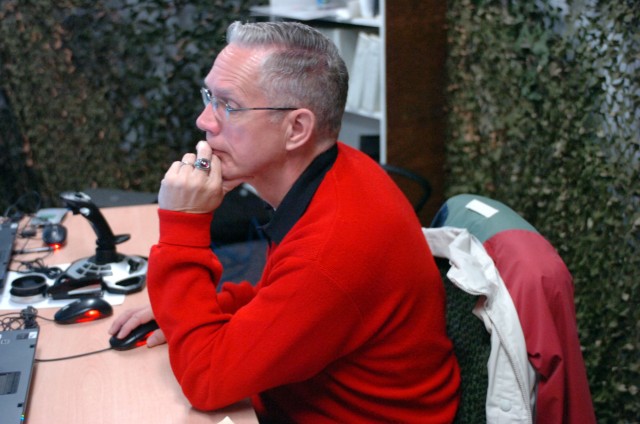
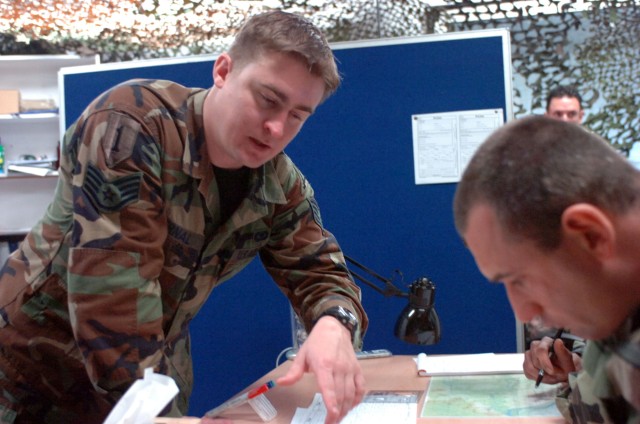
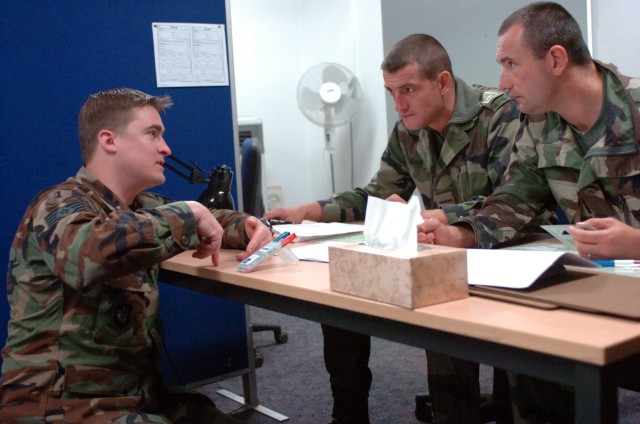
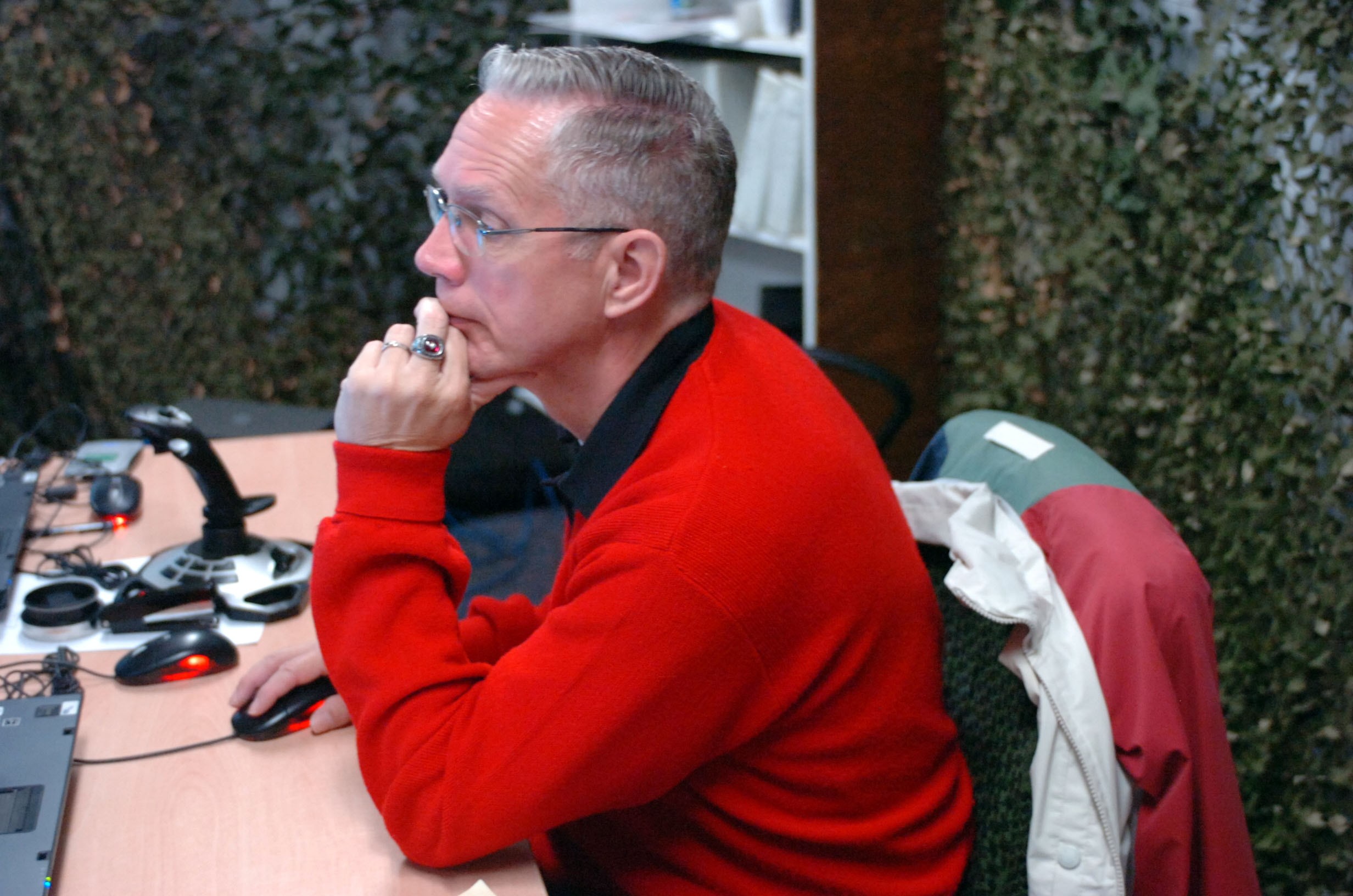
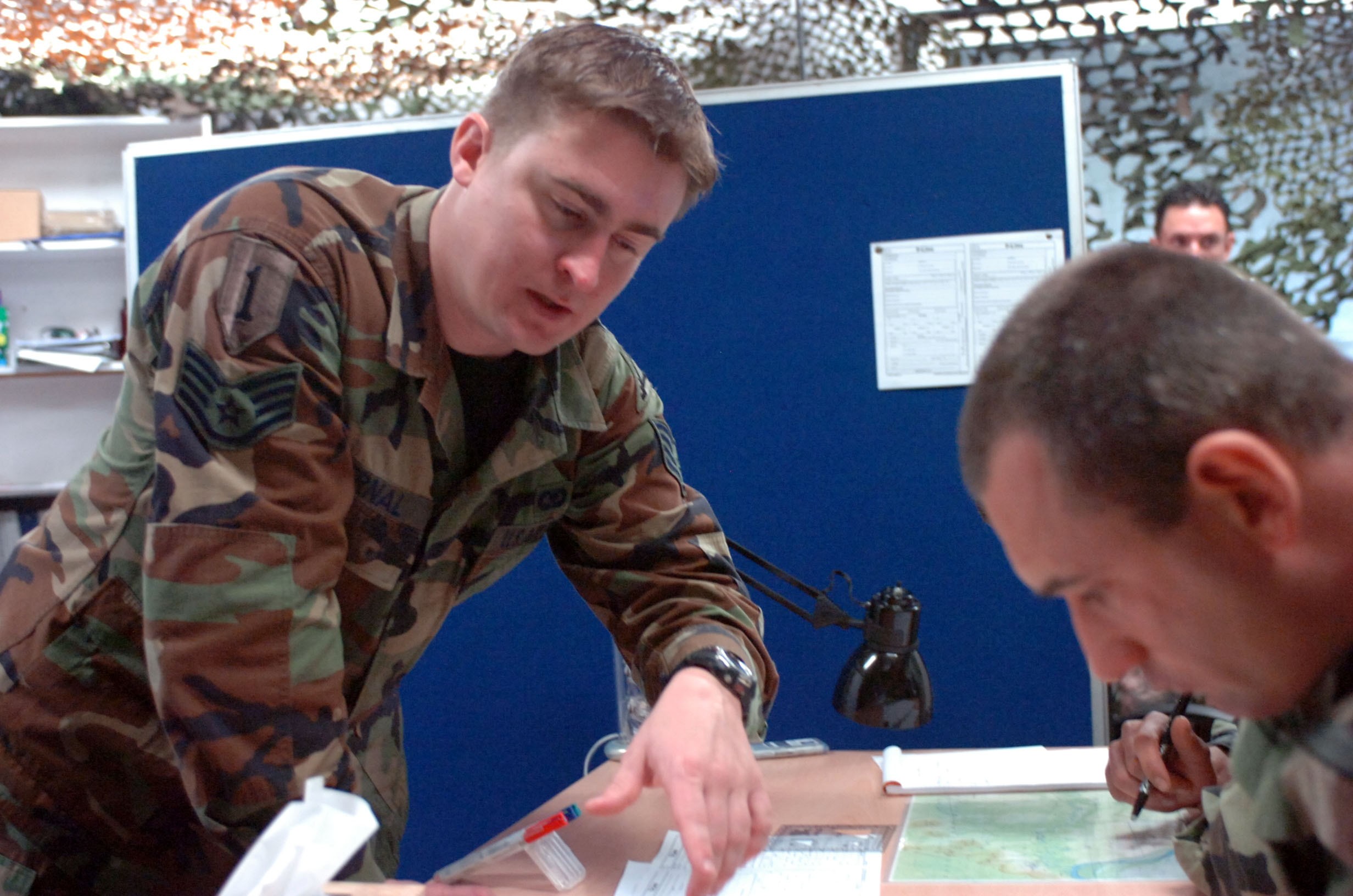
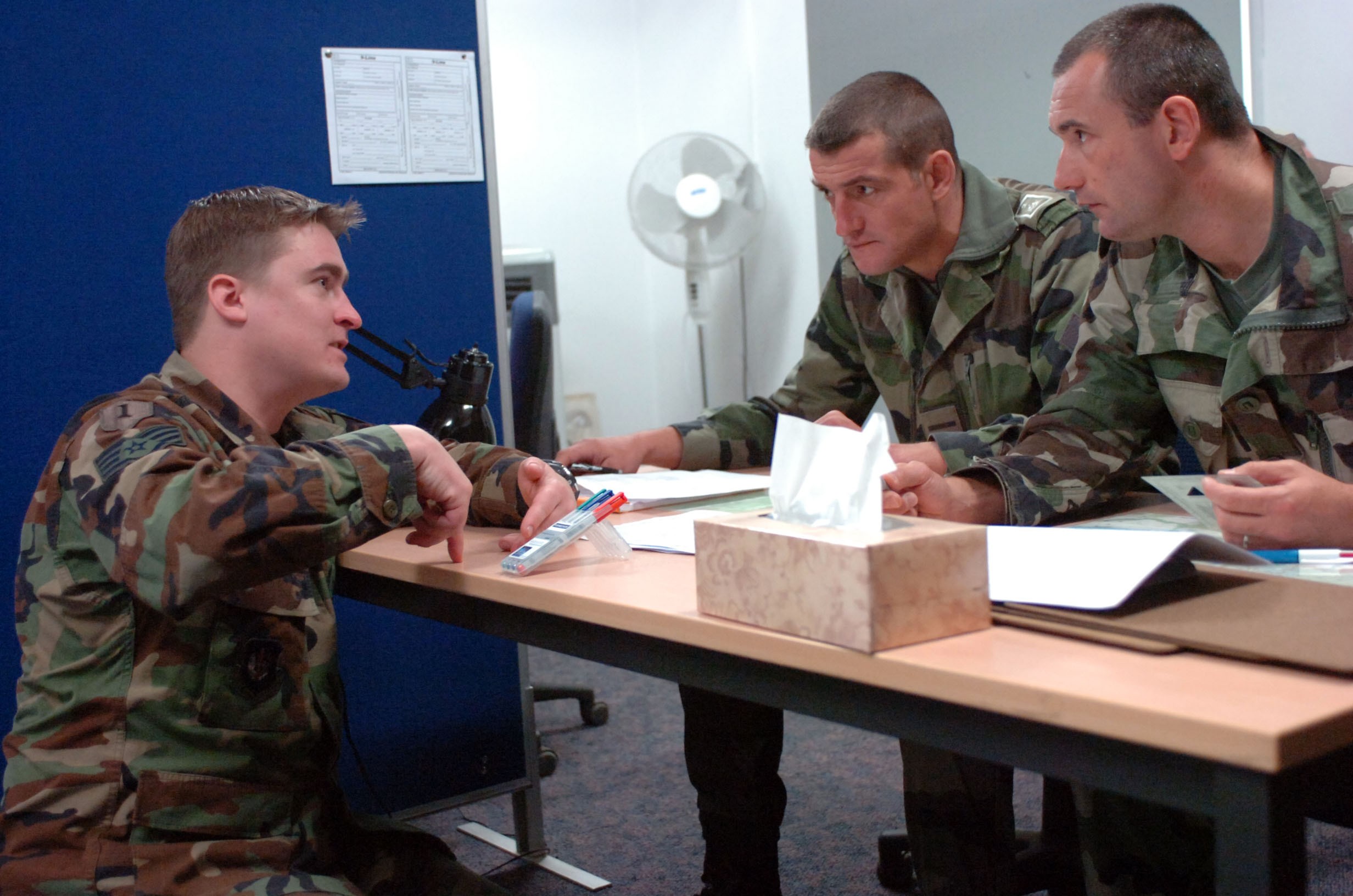
Social Sharing